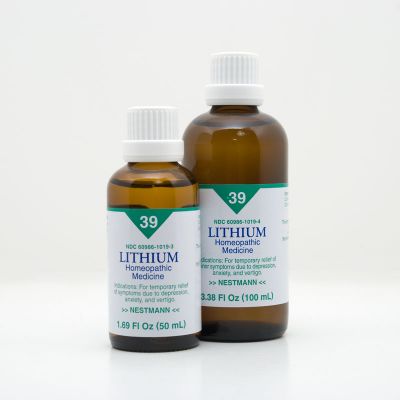Lithium Side Effects
 Serious Side Effects of Lithium
Serious Side Effects of Lithium
- urinating more frequently or having trouble urinating, feeling the need to drink more liquids than usual
- swelling of the ankles
- underactive thyroid gland causing symptoms of fatigue, chills, rapid weight gain and depression
- allergic reaction: rash, hives, swelling of the face, mouth, tongue throat or eyes, and trouble breathing
- decrease in heart rate or passing out
- seizure
- fever with tense muscles and sweating
- feeling cold and color changes in your fingers or toes
- uncontrollable movements of the eyes, tongue, jaw or neck
- changes in vision
Common Side Effects of Lithium
- dry mouth
- hair loss
- minor trembling
- weakness
- a metallic taste in the mouth
- diarrhea
- weight gain
- memory loss
Signs of Lithium Toxicity
Lithium can build up in the body and reach
dangerous levels or
toxicity. Signs of this include
nausea or vomiting, diarrhea and
changes in vision. If you experience any of the following you may have
lithium toxicity and should
call your doctor at once:
- uncontrollable shaking or twitching
- slurring speech
- severe tiredness
- extreme confusion
- unconsciousness
- seizure
Warnings & Recalls for Lithium
Taking too much Lithium can result in a
potentially fatal overdose known as
Lithium Toxicity. To prevent Lithium levels from becoming too high in the blood, do not take more of this medication than prescribed by your doctor and do not consume alcohol or other drugs. If you experience any symptoms of this condition, such as shakiness, lack of coordination, blurred vision, or seizures, seek medical attention immediately.
Lithium is an
FDA pregnancy Category D drug. If taken during pregnancy, Lithium
can harm the fetus. Lithium can also be passed through breast-milk to a nursing baby.
Do not take Lithium while you are pregnant or breastfeeding unless otherwise instructed by your doctor.
While taking Lithium
avoid dehydration. Replenish your body with fluids during exercise to decrease the risk of Lithium toxicity.
Do not drink too much liquid as it may decrease effectiveness of Lithium.
Before taking Lithium, let your doctor know if you:
- are pregnant, planning to become pregnant or are breastfeeding
- are allergic to Lithium
- have kidney disease or heart disease
- have or have a history of any mental disorders
- have a history of fainting
- have Brugada syndrome or a family history of Brugada syndrome
- have abnormally high or low sodium levels
- are taking any other medications
Lithium Treatment and Use
Lithium | Eskalith is a generic antimanic agent medication approved by the U.S. Food and Drug Administration for the treatment and prevention of the side effects of bipolar disorder. Lithium may be used to treat the following symptoms:
- hyperactivity
- extreme mood changes
- hurried speech
- inability to focus
- poor judgement
- lack of need to sleep
- aggressive behavior or anger
Lithium may be prescribed to patients to prevent the occurrence or reduce symptoms of manic episodes.
Off-label uses of
Lithium include
treatment for depression, Grave’s disease (over-activity of the thyroid gland), migraines, and decreasing levels of neutrophils (type of white blood cell) caused by chemotherapy or
SIADH.
Lithium is not approved for use in children under the age of 12.
How does Lithium Work?
Lithium is thought to alter neurotransmitters in the brain and interfere with nerve signals, causing a stabilizing effect. This balance leads to an increase in the ability of the brain to function properly and a decrease in abrupt mental changes.
Lithium Dosage Information
Lithium is manufactured as a tablet, capsule, and oral suspension (liquid). Dosage amounts depend on the condition of the patient’s health, medications the patient is currently taking, their overall response to lithium, and treatment type. It is important to get your blood and kidney tested while taking Lithium to ensure that this medication is working effectively. Take Lithium only as prescribed by your doctor. Do not self-adjust your dosage level.
Do not take more Lithium than instructed by your doctor. Lithium can be extremely poisonous to the body if high levels are reached in the blood and can even be fatal. See “Side Effects” tab for signs of Lithium toxicity.
Other Names for Lithium
Brand name:
- Eskalith
- Eskalith CR
- Lithobid
Generic name:
Lawsuits & Legal Information for Lithium
 Serious Side Effects of Lithium
Serious Side Effects of Lithium